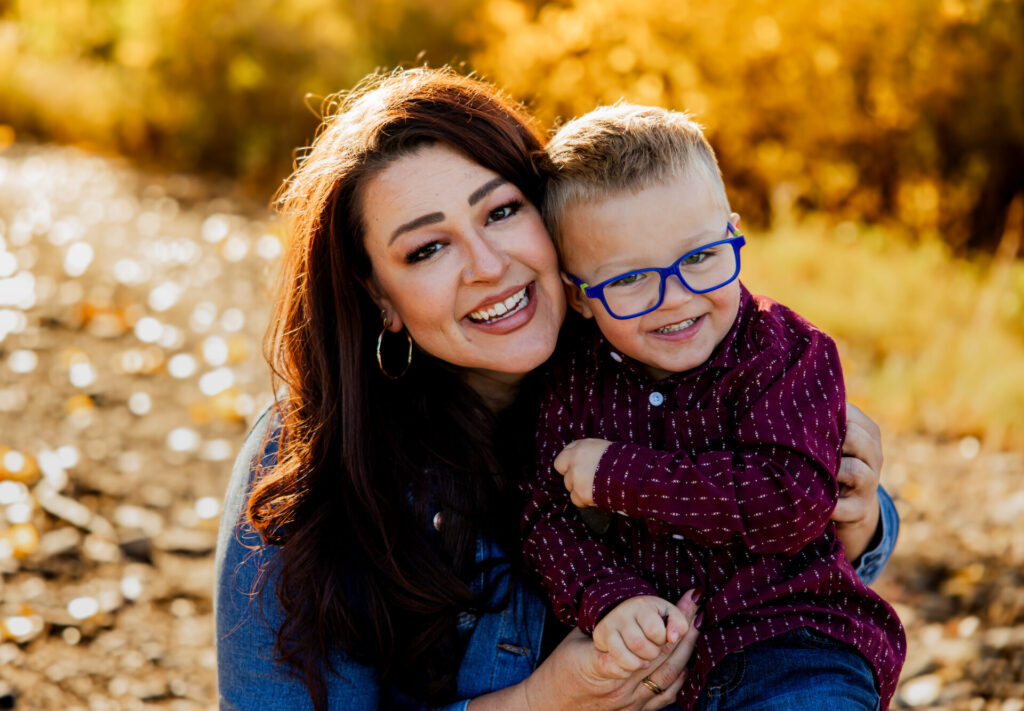5 basics of trauma-informed caregiving

I have the honor and privilege of training amazing foster parents all over Colorado. I hear regularly that being a foster parent brings families so much joy, excitement and new adventures. At the same time, I recognize that being a foster parent can come with challenges. At Mount Saint Vincent, our hope is to prepare parents as much as possible for those possible challenges, while helping them better understand where these behaviors stem from. Providing a trauma-informed training for caregivers is one way Mount Saint Vincent aims to support the foster care community.
Though our training consists of many topics, including child development, impact of adverse childhood experiences and how to develop interventions, here are “5 basics” of trauma-informed caregiving that I think help all foster parents.
- A foster child’s chronological age is not always where they are developmentally. At times it can feel like you are working with a much younger child. Your goal: meet them where they are developmentally. For most of us, we all had times in which our parents were more than likely scratching their heads and saying, “Are you kidding me right now?!” following some outrageous behaviors we displayed. That being said, one of the symptoms children who have adverse childhood experiences can display is their inability to slow down and think through their behaviors before acting. Which means you might be saying, “Are you kidding me right now?!” a bit more than you were anticipating.
- Self-awareness is extremely important. Challenging behaviors can cause you to feel stressed (an understatement, I know) and if you don’t know what you look like stressed, your foster child will gladly tell you. Trying to help a child regulate when you yourself are stressed is virtually impossible and often goes south quickly. Think about the last time you were stressed and someone who was equally as stressed tried to help you. I’m guessing you were thinking to yourself, “Just leave me alone!” We all have these crazy things called mirror neurons in our brains, and while they can often help us, they can also become our worst enemy and pull us to the dark side if we aren’t aware of the internal and external cues our body is sending us that we are being stressed.
- Consequences are healthy and a part of development. Let me say that again, consequences are healthy and a part of development. However, it’s all about timing. I often get foster parents who feel as though we said, “Don’t consequence kids” and that’s not true from my perspective. Parents just have the challenge of giving the consequence when the child is actually ready to hear it. If we consequence too early it’s perceived as a threat, and if we consequence too late then we aren’t connecting it to the original behavior. It’s also important to remember that while some children might be able to think through “if/then” statements, for children who have more of a trauma background that’s a really tough job for them.
- The intentionality we place on behaviors can influence how we feel and respond. Learning how trauma can impact the developing brain, and in turn can influence the behaviors we see, can decrease the intentionality we use. Though it’s completely normal to want to use words like “manipulative” when describing behaviors or say, “They are doing it on purpose and know better,” truly understanding the stem of the behaviors can be extremely helpful. If I had a dollar for every time I reacted to a behavior based on my own intentionality I put on it, I’d be a millionaire. Catching yourself and not personalizing it is a difficult skill to develop.
- Our ability to engage in safe, healthy, consistent relationships is directly related to the type of relationships we had early on in life. And the same is true for foster children. It can feel like you are speaking a different language to them by showing that you love them and care for them. It can feel foreign, and for some foster children engaging in safe, consistent, healthy relations can be too intimate and cause fear instead of trust. The infamous honeymoon effect is directly related to this idea. Right when you feel like you’ve got it and get in your stride, could be when we’ve become too close emotionally for our foster kids. The more short bursts of positive interactions you can have throughout the day the better. I really mean short, no more than three to five minutes, numerous times a day!
I hear regularly, as I’m sure you all do, that we need more foster parents in Colorado. It’s my belief that not only do we need more foster parents, we need to ensure that all foster parents current and future have a trauma-informed lens on. Foster parents’ role is so valuable and has such a potential to truly change a child’s life for the better.
More Posts







